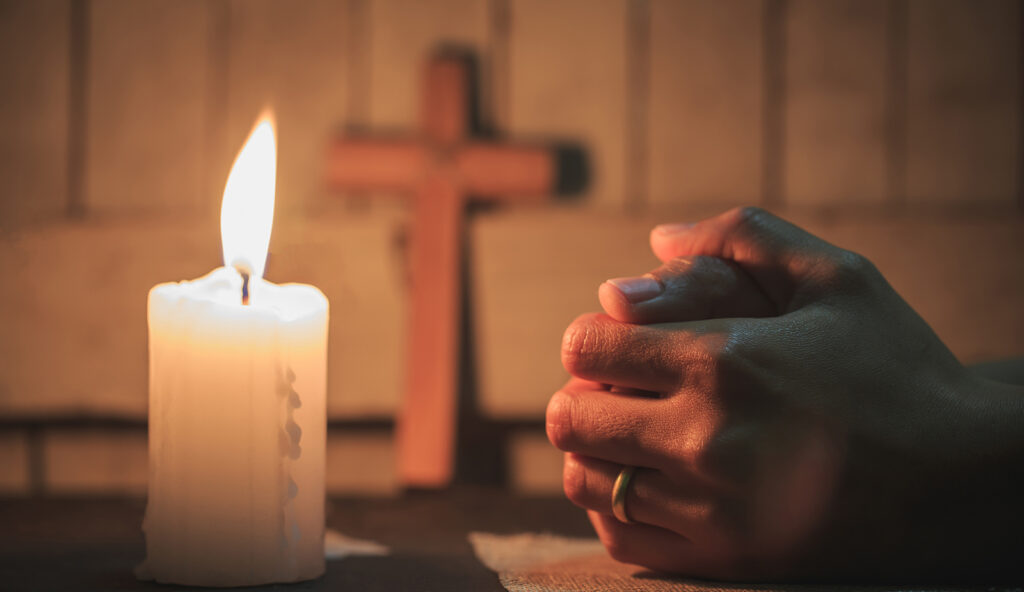As a young boy, about age 10, I made the mistake of using some language gleaned from the playground — and uttering it near my father. “Holy cow!” I exclaimed, for whatever reason. To my surprise, he instantly admonished me: “Cows are not ‘holy,’” he said, “and you will not use that word in that way.”
It was doubly surprising, in retrospect, because our little Bible chapel — I was raised in a fundamentalist Protestant home — rarely discussed holiness. When we did, it was usually in the sense of moral goodness. But there was something about my father’s brief admonishment that stuck with me, precisely because it hinted at the mystery and paradox of holiness.
Entire books could be written about holiness. Many have been written, even in very recent years. My modest observation here is that holiness is both quite simple and infinitely mysterious. In this way, it reflects something essential about God, who is both perfect simplicity and boundless mystery. And both are impossible for us to fully comprehend. As St. Augustine observed: “If you understood him, it would not be God.”
So, can we fully understand and comprehend holiness? No, not fully, as the Catechism of the Catholic Church indicates in the one section that directly addresses holiness:
The holiness of God is the inaccessible center of his eternal mystery. What is revealed of it in creation and history, Scripture calls “glory,” the radiance of his majesty. In making man in his image and likeness, God “crowned him with glory and honor,” but by sinning, man fell “short of the glory of God.” From that time on, God was to manifest his holiness by revealing and giving his name, in order to restore man to the image of his Creator (Catechism, No. 2809).
And yet, we are called to be holy. This call to holiness is, of course, not a suggestion or a side note. However, oddly enough, the book of Genesis had just one reference to holiness — and it appears in the account of Creation, prior to the fall: “So God blessed the seventh day and hallowed it, because on it God rested from all his work which he had done in creation” (Gn 2:3).
As Scott Hahn notes in “Holy Is His Name” (Emmaus Road, $24.95), “The seventh day, the Sabbath, would be considered holy, because it is specially inhabited by God.” And this, in turn, is intimately connected to the reality of covenant, for the Hebrew word sheva (“seven”) “also serves as the word for oath” — and sacred oaths are at the heart of covenantal relationships.
As Hahn shows in detail, the next four books of the Pentateuch are bursting with references to holiness and covenants. And as the Evangelical authors (Matt Ayars, Christopher T. Bounds, and Caleb T. Friedman) of “Holiness: A Biblical, Historical, and Systematic Theology” (InterVarsity Press, $45) observe, the “Pentateuch first understands holiness as ‘otherness.’ … As the Pentateuch sees it, holy is synonymous with the restoration of the image of God via covenant faithfulness. … when God’s people are faithful to the covenant (i.e. holy), they resemble him; they are bearers of the divine image.”
A powerful example of all this is found in Leviticus 11 where, amid detailed laws about a host of ordinary and sacred acts, God says to Moses: “For I am the Lord your God; consecrate yourselves therefore, and be holy, for I am holy” (Lv 11:44). The Israelites were to be distinct, separate, and “other” in relation to the pagan nations around them.
Idolatry
Human nature being what it is, the rest of the Old Testament has numerous descriptions of the people falling into idolatry and failing in the call to holiness, along with exhortations to renew their covenantal vows, return to the Law, and worship God alone. “Do not turn to idols,” the people are told, “or make for yourselves molten gods: I am the Lord your God” (Lv 19:4). Alas, idolatry was often more common than not. Later on, the prophet Jonah, reflecting in the darkness of a great fish’s belly, reflected: “Those who pay regard to vain idols forsake their true loyalty” (Jon 2:8).
And those who forsake their loyalty to God will lose their bearings. Whereas holiness leads to wholeness, idolatry leads to chaos. “Idolatry, then, is always polytheism,” wrote Pope Francis in Lumen Fidei (2013), “an aimless passing from one lord to another. Idolatry does not offer a journey but rather a plethora of paths leading nowhere and forming a vast labyrinth.” The only way out of the labyrinth is life in Christ, to partake in the divine nature gifted by the Triune God (cf 2 Pt 1:4).
Through baptism, our entrance into the new covenant, we share in the holiness of the holy Son of God Jesus Christ (cf. Lk 1:35). But, again, this is not a matter of just being morally good, for to be holy is to belong to God and God alone, to be oriented completely to the “inaccessible center of his eternal mystery.” Bought with a price — Christ’s saving death and Resurrection — we glorify God in our body, living the mystery of eternal holiness here in time and space (cf. 1 Cor 6:20).
My father’s chastising remark to me about the word “holy” came to mind recently while at Divine Liturgy. Near the end of the Byzantine service, having received the Sacrament of the Sacraments, the Eucharist, we sang these words:
May our lips be filled with Your praise, O Lord,
so that we may sing of Your glory, for You
have deemed us worthy to partake of Your
holy, divine, immortal and life-creating Mysteries.
Keep us in Your holiness, so that
all the day long we may live according to Your
truth. Alleluia! Alleluia! Alleluia!
Keep us your holiness. Not just so we can “be good,” but because God alone is Good — and we belong to him. Which, paradoxically, means we are truly holy. Alleluia, indeed!

